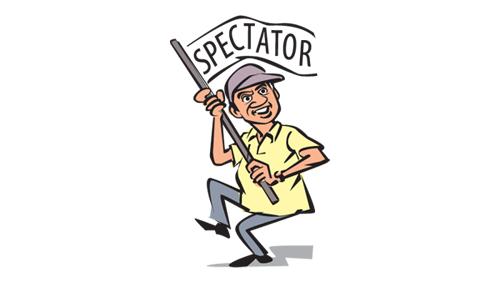
At the time of writing this column, the local government elections are yet to be held, but when these words are read the outcome of the election will be known. Much has been said and many promises made in the lead up to the polls and the results will indicate which political party has been most convincing. To an extent, the election campaign was clouded by one major issue: the findings of the Presidential Commission of Inquiry into the sale of Central Bank Treasury Bonds. Another, equally or even more important issue emerged in the latter stages of the campaign: the findings of the Presidential Commission inquiring into Serious Acts of Fraud, Corruption and Abuse of Power, State Resources and Privileges (PRECIFAC). Among the recommendations of the latter Commission was the imposition of permanent civic rights disabilities on those found guilty of corruption and abuse of power. PRECIFAC has noted that the current penalties for these offences -which is only a period of civic rights disability- are not sufficient. Now, the JO or the party that represents them, the SLPP is up in arms claiming that this is a ploy to prevent their de facto leader, former President Mahinda Rajapaksa from making a worthwhile comeback to national politics, rather than languishing as a mere parliamentarian.
Civic rights disabilities
The SLPP has already made threatening noises, challenging the government to deprive Rajapaksa of his civic rights. If that is done, they will “bring the people to the streets”, they have warned. “How dare they do so to the leader who defeated terrorism”, they ask. This is not the first instance where civic rights disabilities have been imposed on our politicians. No less a person than the world’s first woman Prime Minister, Sirimavo Bandaranaike was stripped of her civic rights. That was under the tenure of JR who also appointed a Special Presidential Commission comprising Supreme Court Justices S. Sharvananda, J.G.T. Weeraratne and Appeal Court Justice KCE de Alwis. Ms. Bandaranaike was not the only person to suffer that fate. Her all powerful Minister, Felix R Dias Bandaranaike and AHM Fowzie - who is still in active politics - were also stripped of their civic rights by that government. Interestingly, even the deprivation of civic rights of Ms. Bandaranaike - who was arguably a more charismatic figure than Mahinda Rajapaksa - did not bring the people on to the streets in protest. When the much awaited parliamentary debate on the reports of PRECIFAC and the Commission of Inquiry into the Central Bank bond sale took place last week, both, the SLFP and the JVP were against the imposition of civic rights disabilities on individuals. However, the JVP did say that it will support introducing legislation to prevent those convicted of corruption from running for public office. The issue at stake here is not whether Mahinda Rajapaksa should be deprived of his civic rights. The issue is whether corrupt politicians, once they are found guilty through a proper trial, should be deprived of their civic rights and not be allowed into public life ever again. The current Constitution provides safeguards of a similar nature. Article 89 of the Constitution spells out in detail the prohibitions imposed on those convicted of various offences. These prohibitions prevent such offenders from running for public office for various periods, ranging from three to seven years. The current Constitution, under Article 81, also provides for those found guilty of an offence by a Presidential Commission to be stripped of their civic rights through a resolution passed in Parliament, with a two-thirds majority. What PRECIFAC is recommending is that these measures be enhanced so that such individuals are not allowed to run for public office at all.
Avaricious tendencies
Given that this country has suffered for many years from politicians from political parties of different hues engaging in corruption with gay abandon, we do not believe any right thinking Sri Lankan would feel that it is a harsh penalty. In fact, such a deterrent is long overdue. Many feel, this is the only way the avaricious tendencies of corrupt politicians can be curbed. If Mahinda Rajapaksa’s hands are indeed clean, he need not worry. Before any of this can come into effect, Rajapaksa will have his day in court where he can answer all the charges against him and clear his name, if he is innocent. After all, the Judiciary does not bow to the whims and fancies of political masters now, as it did during Rajapaksa’s tenure! There is also no need for Rajapaksa to worry about a parliamentary resolution to strip him of his civic rights. Unlike JR, President Sirisena does not enjoy a two-thirds majority in Parliament, so such a resolution will never see the light of day. While everyone agrees there should be no political witch hunts against particular individuals, it must also follow that political leaders should not be immune from prosecution if they have committed acts of corruption and abuse of power, just because they have won a war or built many highways and ports during their term of office. Recently, a police constable was sentenced to ten years rigorous imprisonment and deprived of his civic rights for seven years, by the Colombo High Court after he was found guilty of accepting a bribe. How is it that a public officer is given such harsh punishments for an offence involving a few thousand rupees but politicians are allowed to go scot free after depriving the country of hundreds of millions of rupees? Just the other day, former Bangladeshi PM Khaleda Zia was sentenced to five years rigorous imprisonment, along with five others. Zia, the chairperson of the country’s main opposition BNP and a two time Prime Minister was convicted of embezzlement of funds meant for an orphanage. Maybe, we have a thing or two to learn from our South Asian neighbour, not just in cricket but in politics too!
